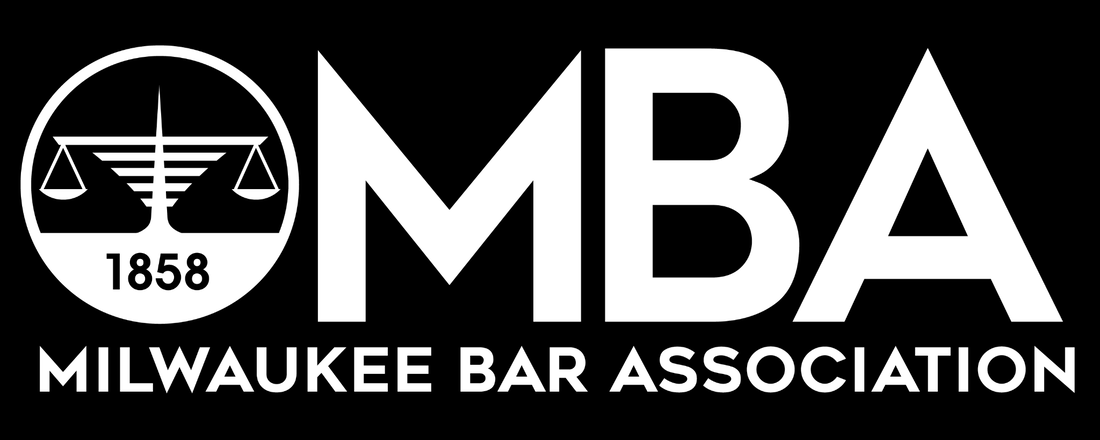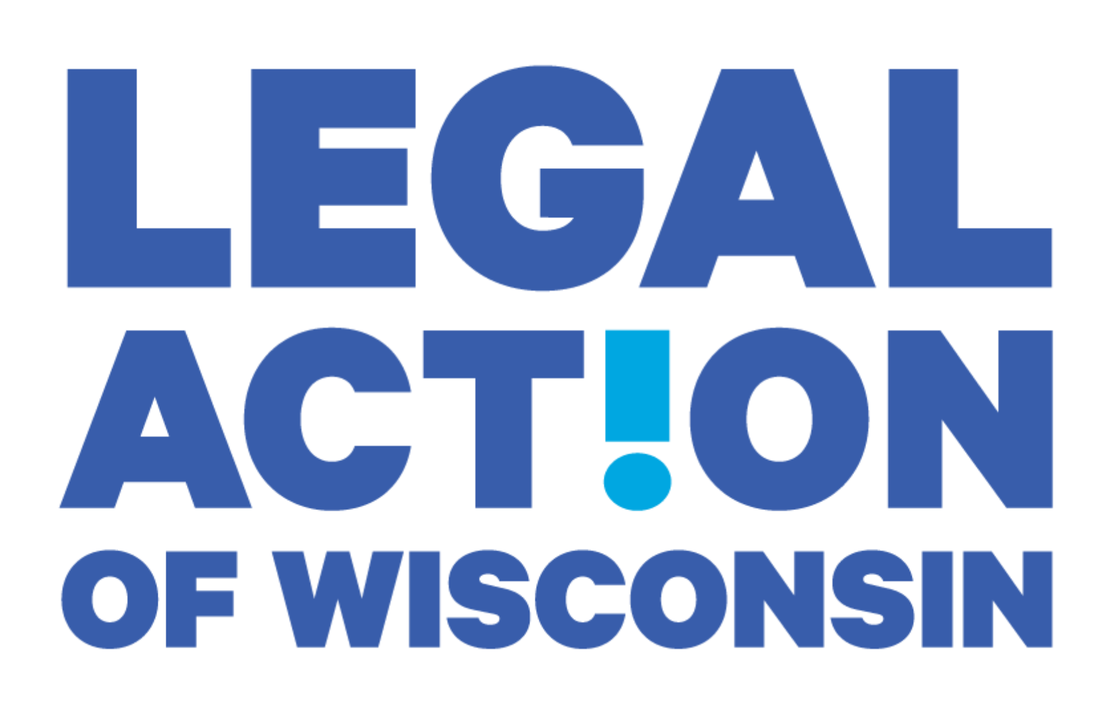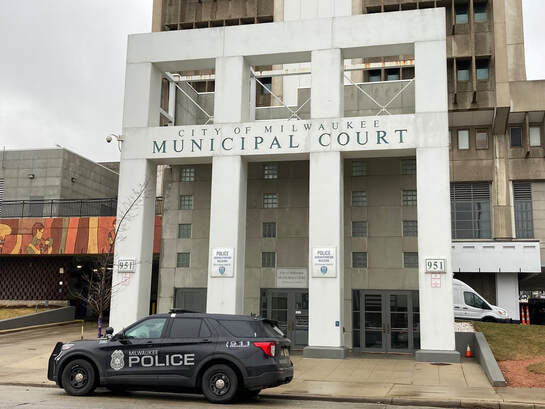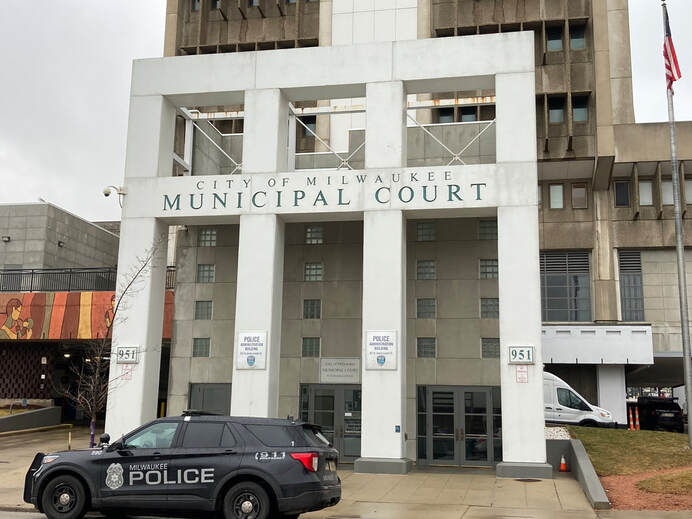|
By Gretchen Schuldt
A Milwaukee County judge acted with “apparent antipathy” toward a state law designed to protect businesses from unfair treatment when he ruled the law did not apply to a contract between Milwaukee Municipal Court and JusticePoint, a nonprofit that provides services to indigent defendants, the organization alleges in an appeals brief. Circuit Judge J.D. Watts “disregarded the factual record, made unsupported factual findings, and erroneously interpreted and applied the law to find that the relationship between JusticePoint and the City does not qualify as a dealership under the WFDL,” attorneys Jeffrey Mandel, Erin K. Deeley, and Rachel E. Snyder wrote on behalf of JusticePoint. The WFDL is the Wisconsin Fair Dealership Law, the 50-year-old statute designed to protect businesses from unfair and arbitrary actions by entities issuing contracts. The appeal seeks reversal of Watts’ ruling, a remand to circuit court, and a temporary injunction while the case is litigated there. JusticePoint qualifies for WFDL protection and the city must show that it met certain requirements in ending the contract, they wrote. The city must show it had good cause to end the relationship, that it issued proper notice, and that it provided JusticePoint an opportunity to correct any performance problems. “The city admits to making no effort to comply with any of these three requirements, relying instead on a ‘convenience’ clause as its sole justification for terminating JusticePoint’s contract,” they wrote. “This is patently insufficient under the WFDL.” JusticePoint’s agreement to provide Milwaukee Court Alternatives Program (MCAP) services was terminated at the behest of two of the three Milwaukee Municipal Court judges without explanation, under a “convenience” clause that allows the city to end a contract for any reason with 10 days' notice. The city notified JusticePoint of the termination in May 2023, giving the organization until mid-July to finish its work. Municipal Court officials did not name any successor provider program and said the court would seek bids sometime in the future. That meant that without JusticePoint, Municipal Court defendants would lose the assistance the organization provides for completing community service requirements, handling inability-to-pay forfeiture cases, or finding various social services. JusticePoint sued over the termination, alleging that it violated the WFDL, and Circuit Judge Hannah Dugan temporarily placed the contract cancellation on hold. Watts took over the case after that, ruling against JusticePoint after an October hearing on the matter. The city contended that, applied to a municipality, the WFDL should protect only businesses with a profit motive or a business offering, to protect public procurement law, the JusticePoint lawyers said. “Its concern was not a concrete one in this instance but an abstract fear of a potential slippery slope,” they said. The city also argued that applying the WFDL would lead the city to violate competitive procurement regulations, but “admitted this might be an illusory issue because it ‘may be accurate’ to say that the instant case has no bearing on procurement regulations.“ “Though the city maintained its consistent agreement that JusticePoint distributes city MCAP Services, the trial court at numerous points attempted to steer the city into making arguments contrary to that position — and inconsistent with the factual record,” they said. Minutes after the October hearing ended, the attorneys wrote, Watts “presented a single-spaced, 11-page written decision that disregarded the city’s arguments and the undisputed factual record, concluding instead that: 1) the relationship between JusticePoint and the City was not a dealership protected under the WFDL because JusticePoint was distributing its own, rather than the City’s, services; and 2) there could be no community of interest between the parties in the absence of a ‘joint undertaking’ and shared profitability.” Watts then prompted the city to seek dismissal of the entire case, which he granted, they said. Appellate Judge M. Joseph Donald issued a stay pending appeal, maintaining the suspension of the contract termination. At the trial court level, Watts “made a series of legal errors in applying the law to the undisputed facts of this case, fundamentally narrowing the purview of the WFDL in contravention of both statutory text and binding precedent,” the JusticePoint attorneys said. Watts held, for example, that the “WFDL cannot apply outside of conventional franchise-franchisee, profit-driven, commercial relationships,” an error appellate courts have consistently warned against, they wrote. “To the contrary, JusticePoint’s delivery of services on behalf of the City fits soundly in the ambit of the WFDL under the uncontested facts before this Court,” they said. The nonprofit qualifies for protection under the law because it has an agreement with the city, distributes city services, and shares a community of interest with the city, they said. While the city effectively conceded that JusticePoint distributed city services, Watts found differently, ruling that JusticePoint was distributing its own services. Watts found it dispositive that the city “ ‘did not have the services’ themselves and . . . Municipal Court defendants do not directly pay JusticePoint for the MCAP Services those defendants receive,” the lawyers wrote. The law does not require that, however, they said. It simply requires that a dealer sell or distribute the grantor’s — in this case the city’s — goods or services. “If WFDL protection applied only if JusticePoint was selling city services, the agency could charge a penny meeting Watts’ “atextual, invented requirement” but not making JusticePoint profitable or defraying city expenses for MCAP services, they said. Watts’ misinterpretation also would effectively block charitable nonprofits from WFDL protection if they provide services free of charge for recipients, they wrote. Watts also misread the law’s “community of interest” provision to require JusticePoint to maintain a commercial business enterprise receiving revenue and setting prices, the JusticePoint attorneys said. Under state Supreme Court precedent, a community of interest exists when there is continuing financial interest and interdependence, they said. A “ ‘continuing financial interest’ contemplates a ‘shared financial interest in the operation of the dealership or the marketing of a good or service,’ while ‘interdependence' is the ‘degree to which the dealer and grantor cooperate, coordinate their activities and share common goals in their business relationship,’ ” they wrote. Watts also “arbitrarily rejected the uncontested factual record” to find that there was "no coordination of activities” between the city and the nonprofit. He found that JusticePoint’s investments in staff and computer programming infrastructure needed to run its program were not substantial compared to its overall expenses, despite there being no evidence of overall expenses offered, the lawyers said. While JusticePoint does not charge clients for its services, it saves the city money and has a financially interdependent relationship with the city, they wrote. The city’s own goal for the program, as stated in its most recent request for proposals to operate the program, is to “ ‘ultimately reduce Milwaukee County Criminal Justice Facility and House of Correction populations and reduce the associated cost to the City of housing these offenders.’ “ The agency also works closely with Municipal Court and other city officials in its program operations, they said.
0 Comments
By Alexandria Staubach
The Wisconsin Court of Appeals on Monday ordered that JusticePoint’s services for Milwaukee Municipal Court remain in place while litigation between the organization and the City of Milwaukee proceeds. As WJI previously reported, JusticePoint’s contract to provide Milwaukee Court Alternatives Program (MCAP) services was terminated by two of the three Milwaukee Municipal Court judges without much explanation, under a “convenience” clause. The city notified JusticePoint of the termination in May, giving the organization until mid-July to finish its work. The court did not name any successor provider for the MCAP services and has said it will seek bids at some future date. That means that without JusticePoint, municipal court defendants will lose the assistance the organization provides for completing community service requirements, handling inability to pay forfeitures, or finding various social services. JusticePoint sued the city on July 10, moving for a temporary restraining order (TRO) and preliminary and permanent injunctions to keep its contract and the program alive. JusticePoint argued that termination of its contract violated the Wisconsin Fair Dealership Law (WFDL). Milwaukee County Circuit Judge Hannah Dugan granted JusticePoint a TRO on July 10 to prevent expiration of the contract. But on Oct. 5, Judge J.D. Watts denied a preliminary injunction and dismissed JusticePoint’s case. Watts issued a 30-day stay of his decision to allow an appeal, but he refused to issue a stay that extended any longer. JusticePoint then sought continuation of the TRO by the appeals court. Justice Point will now continue to provide services to Milwaukee Municipal Court pending a decision on the appeal. The issues on appeal will require the court to evaluate whether the WFDL applies to the city’s relationship with JusticePoint. Under the WFDL, a dealership exists when a person or entity “is granted the right to sell or distribute goods or services,” and when a “community of interest” exists between the parties. JusticePoint’s argument is that it distributes city services to individuals using the MCAP and that it has invested in the program. Monday’s decision by Court of Appeals Judge M. Joseph Donald focused on the procedural aspects of granting a stay of Watts' order and evaluated three factors: 1) likelihood of success on appeal; 2) irreparable injury in the absence of stay; and 3) the existence of substantial harm to other interested parties. In examining these factors, Donald found that “JusticePoint showed more than a possibility it would prevail”; the stay was otherwise appropriate, as full-time staff could be lost and reputational harm to the program could result if the program is ultimately continued; and substantial harm could result to defendants who receive JusticePoint's MCAP services with no clear alternative to those services in place. Donald said his order will “maintain the status quo” pending a decision that will resolve the appeal. JusticePoint loses court fight to maintain services contract with Milwaukee Municipal Court10/6/2023 By Margo Kirchner
A judge denied JusticePoint’s motion for a preliminary injunction to maintain its contract providing services to low-income individuals facing citations in Milwaukee Municipal Court. Milwaukee County Circuit Judge J.D. Watts issued his ruling in writing after hearing arguments on Thursday afternoon. He stayed his decision for a month to allow JusticePoint time to appeal and ask the court of appeals for a longer stay. JusticePoint has run Milwaukee’s Municipal Court Alternative Services Program (MCAP) since 2015. Some of the organization’s staff have worked on the MCAP for four decades. The goal of the MCAP is to help low-income municipal court defendants comply with alternatives to forfeiture payments (such as community service) and find needed social services like mental health or drug abuse treatment. JusticePoint is paid by the city for running the MCAP; those using the MCAP services pay nothing. In spring 2023, Milwaukee Municipal Court officials told JusticePoint that judges were troubled by how JusticePoint was sharing citations with Legal Action of Wisconsin attorneys who represented municipal court defendants. The citations are public records that the attorneys would be entitled to receive upon request. JusticePoint stated at a public meeting in June that the practice of sharing citations was discussed with city officials years ago and no one objected to it until recently. In May, city officials notified JusticePoint that its contract would terminate effective July 11. The city cited a contract provision allowing termination for “convenience.” Otherwise, the contract would have continued through Dec. 31, 2023, with a remaining one-year renewal allowing extension through 2024. JusticePoint sued the city on July 10, moving for a temporary restraining order and preliminary injunction to keep the contract in place. JusticePoint alleged that the termination on short notice without a right to cure violated the Wisconsin Fair Dealership Law (WFDL). Milwaukee County Circuit Court Judge Hannah Dugan granted a TRO on July 10, keeping JusticePoint’s contract alive until Thursday’s hearing. Attorney Jeffrey Mandell represented JusticePoint at the hearing. Attorney Kathryn Block represented the city. Mandell noted a lack of any evidence submitted by the city regarding the motion and walked through the WFDL statutory provisions and caselaw. Under the WFDL, a dealership exists when a person or entity “is granted the right to sell or distribute goods or services” or use a trademark, and when a “community of interest” exists. Mandell argued that JusticePoint distributes city services to the individuals using the MCAP and that JusticePoint had invested in the program, meeting the definition. Watts questioned Mandell about the lack of financial payment by those using JusticePoint’s services and discussed several cases regarding distribution of services. The city did not dispute that a municipality may be considered the grantor of a dealership under the WFDL. Block instead focused her comments on city contracting requirements. Watts indicated that city rules on contract procurement had no bearing on whether the WFDL applied in the case. After a brief recess, Watts returned to court with a written decision finding that JusticePoint’s relationship with the city was not a dealership under the WFDL. He said that JusticePoint’s argument was “a bridge too far” regarding application of the WFDL. In the written decision Watts found that JusticePoint distributes its own services, not those of the city. “The City did not have these services. The City had to go out and contract with JP to obtain them. The services that JP provided were uniquely JP’s,” he wrote. He also found no community of interest between the parties because JusticePoint received no money from the individuals served. Money it invested in the contract services was done on its own behalf, not on the city’s, he said. Watts set a hearing on Nov. 8 to discuss lifting the stay of his decision if JusticePoint has not appealed and sought a stay from the court of appeals by that date. The stay means that the JusticePoint contract remains in place for another month unless JusticePoint chooses not to appeal. Mandell said he needed to discuss the issue of appeal with his client. Judge Molly Gena did not take office until May 1, 2023, and in a public meeting in June said she was not involved in the decision to terminate JusticePoint’s contract. Milwaukee Municipal Court Administrator Sheldyn Himle stated publicly in June that the decision to terminate the contract was made by the two other Milwaukee municipal judges, Phil Chavez and Valarie Hill. The city in its brief on the motion for preliminary injunction said no other vendor is in place to take over from JusticePoint. The city said it was “confident that another competitive procurement” will draw other vendors and that “[i]n the interim, Judges are able to make direct referrals to social service agencies without the need for a vendor intervening in the process.” Recibir una multa y asistir a una audiencia tribunal puede ser muy estresante e intimidante cuando no está familiarizado con el proceso. Ese estrés puede ser agravado para aquellos que no hablan inglés, ya que los procedimientos se llevan a cabo en inglés. Wisconsin Justice Initiative ha creado este video para ayudar a aquellos que hablan español y necesitan navegar audiencias tribunales municipales de Wisconsin. (Receiving a ticket and going to municipal court can be stressful and intimidating if you aren't familiar with the process. Because proceedings are held in English, that stress can be multiplied for those who do not speak English as a first language. Wisconsin Justice Initiative has created this video to help those who speak Spanish navigate municipal courts in Wisconsin.) Many thanks to the following for their support of this project: By Gretchen Schuldt
The city of Milwaukee ran straight into the Wisconsin Fair Dealership Law when two Municipal Court judges tried to shortcut and back channel their way into firing JusticePoint, the longtime operator of a successful program to divert impoverished defendants from forfeitures and fees they cannot pay. Assistant City Attorney Kathryn Block told a Common Council committee that Municipal Court Judges Phil Chavez and Valarie Hill had legitimate cause to fire JusticePoint, but declined to say what that cause was. The two judges did not consult the city's third judge, Molly Gena, on the matter or even tell her firing the agency was under consideration. The city chose not to fire JusticePoint for cause under its contract with the agency, which would have required notice and an opportunity to cure the practices. Instead, the city terminated JusticePoint for the city's convenience without telling the agency or the public exactly what it was that JusticePoint did wrong. That decision prompted JusticePoint to take the city to Milwaukee County Circuit Court, alleging in a lawsuit that the city's manipulations violated the Wisconsin Fair Dealership Law. Circuit Judge Hannah Dugan ruled that JusticePoint had a reasonable chance of prevailing on the merits and issued a temporary restraining order blocking the contract termination until Oct. 5, when another hearing will be held. (The hearing originally was scheduled for Oct. 31.) The WFDL is almost 50 years old and was adopted partly to "protect dealers against unfair treatment by grantors, who inherently have superior economic power and superior bargaining power in the negotiation of dealerships." The city's "convenience clause" in its contract with JusticePoint would allow the city to terminate the pact for any reason with just 10 days' written notice, but a judge could find that clause a dead letter. The WFDL specifically prohibits dealership relationships from being "varied by contract or agreement. Any contract or agreement purporting to do so is void and unenforceable to that extent only." Block argued in court that JusticePoint did not qualify as a dealership because it did not charge its litigant clients for services. The U.S. Seventh Circuit Court of Appeals found way back in 1989, however, that a book distributor who did not sell goods or services to downstream customers still qualified as a dealer through its distribution activities alone. Jeffrey Mandell, in court and in JusticePoint's $5 million claim against the city, argued that JusticePoint met the required qualifications of a dealership under the law. First, he said, it has a contract with the city. JusticePoint has been providing Municipal Court Alternative program services since 2014, he said. Second, JusticePoint distributes services on behalf of the city, "assisting approximately 11,000 individuals since 2015," he wrote in the claim letter. Finally, he said, a "community of interest," which he acknowledged was a "slippery concept," exists between the city and JusticePoint. The state Supreme Court established two guideposts — a continuing financial interest and interdependence — and the JusticePoint-city relationship meets both, he said. JusticePoint has spent hundreds of thousands of dollars to run its Milwaukee program. "The city benefits significantly from JusticePoint's efforts not only inasmuch as JusticePoint fulfills the inherent purposes of the program, but also because JusticePoint increases the City's goodwill and advances prosocial causes, thereby improving the city as a whole and the Municipal Court in particular," he wrote in the Circuit Court suit. Interdependence is shown through the agency's close and continuing collaboration with city officials, he said. Under the WFDL, the city cannot terminate the JusticePoint contract without providing a 90-day notice, detailing the grounds for termination, and providing JusticePoint with an opportunity to cure, Mandell said in the suit. The city has done none of those things, he said. By Gretchen Schuldt
A Milwaukee County circuit judge on Monday granted a temporary restraining order blocking the city of Milwaukee from terminating JusticePoint's contract to operate the Municipal Court's program that steers indigent defendants to appropriate services and coordinates community service opportunities for people who qualify for alternatives to forfeitures. Circuit Judge Hannah Dugan said, among other things, that JusticePoint had a reasonable probability of success on the merits and would be irreparably harmed without the restraining order. She set a further hearing for Oct. 31 before Circuit Judge J.D. Watts. "Everything has to stay the status quo according to the contract," she said. Sheldyn Himle, chief court administrator of Municipal Court, declined to comment on the ruling. JusticePoint on Sunday filed suit against the city, alleging the manner in which it was terminated — allegedly without cause, without proper notice, and without a chance to cure any deficiency — violated state law. JusticePoint filed a $5 million claim with the city on June 30 as a precursor to the lawsuit. Two Municipal Court judges, Phil Chavez and Valarie Hill, arranged the contract termination without consulting the third judge, Molly Gena. The termination was to be effective at the end of the day Monday, July 10. The city never made public any specific allegations against JusticePoint, but said the contract was terminated for the city's "convenience." The firm's CEO, Nick Sayner, has said the only potential problem he was aware of was JusticePoint's practice of providing copies of municipal citations to Legal Action of Wisconsin attorneys representing the indigent defendants involved in the cases. Sayner has said the agreement to provide the tickets was hammered out five or more years ago in negotiations involving both JusticePoint and city officials, including representatives of the city attorney's office. When Municipal Court raised concerns about it last March, he said, JusticePoint stopped providing the citations. WJI will update this story, so check back for more on the hearing. Read our previous JusticePoint coverage here, here, and here. WJI policy analyst Gretchen Schuldt wrote about the issue for the Shepherd Express here. By Gretchen Schuldt
Milwaukee Municipal Court judges are routinely violating state law in a way that "undermines" a defendant's right to appeal some cases to Milwaukee County Circuit Court, Legal Action of Wisconsin said in a new lawsuit. The suit, technically a petition for a supervisory writ, asks Circuit Judge Pedro Colon to command Municipal Court and its judges to electronically record, as required by law, every hearing held to determine inability to pay a judgment due to poverty and every hearing on reopening a case. The suit names as defendants Milwaukee Municipal Court, its chief administrator, Sheldyn Himle, and Judges Phillip Chavez, Valarie Hill, and Molly Gena. Gena, who assumed office in May, is the former managing attorney of Legal Action. Himle declined to comment. The petition was filed on behalf of a Municipal Court litigant who was unable to appeal a case because her hearings were not recorded, according to the suit. The woman appeared at a Municipal Court hearing via Zoom in September 2020, according to the suit. At that hearing, the Municipal Court judge ordered the woman, a single mother who receives Social Security disability benefits, to satisfy her outstanding debt by an installment payment plan, Legal Action attorney Susan Lund wrote. "The court must have discussed (the woman's) income and ability to pay before determining that a payment arrangement was necessary or setting the amount of her installment payments," she wrote. "The only record of this hearing, the docket, provides no information about those discussions. The record does show that if (the woman) did not pay, the court would automatically issue a warrant, a routine practice of several Milwaukee Municipal Court judges." The woman appeared at another hearing in February 2021, after a warrant was issued. "The docket reflects, 'Def told how to resolve this cs and DL susp 30% of cs 20015220 and 20015221,' " Lund wrote. "There is no further explanation of what this phrase means, much less any information about whether the judge considered all necessary factors and issues," she said. "It seems clear that there was some discussion of (the woman's) ability to pay, but there is no explanation in the docket for why the judge failed to lift the warrant when (the woman) was a recipient of means-tested public assistance." Under state law, recipients of such public assistance automatically are presumed unable to pay, and a judge must suspend or extend payment or consider community service as an alternative. The woman appeared in another case that same day. The docket for that one states, “ 'Def given information of 30% being $82 to terminated DL suspension,' " according to the suit. "Once again, the Court failed to record the hearing, though money and ability to pay must have been discussed," Lund wrote. "Once again, the docket provides no information about what law or facts the judge considered during the hearing or why the judge decided not to lift (the woman's) driver’s license suspension." The woman owes a total of $428 in three cases, the petition says. In two cases, Municipal Court listed, as an alternative to payment, "Commitment – Consecutive for 4 days," a reference to incarceration for four days. In the other case, the Court listed as an alternative a one-year suspension of the woman's driver's license. The woman "has been notified by standard computer-generated notices that failure to pay by the due date will result in automatic enforcement of the sanctions for nonpayment," Lund wrote. (Lund said in a footnote that the woman would like to reopen two tickets, including one with an outstanding forfeiture, in the interest of justice because Municipal Court suspended her license in error. The mistake led to two separate convictions of operating after suspension, resulting in $460 in forfeitures and reinstatement fees.) The lack of recordings make appeals to Circuit Court extremely difficult, Lund said. "In a municipal court record review, a circuit court is limited in their review of the record to determining whether the evidence supports the municipal court decision," she wrote. "The circuit court also has the right to review the municipal court’s interpretations of a statute or any other conclusions of law de novo. ... Neither of those things will generally be possible without a transcript, as oral requests and oral decisions are common and indigent defendants have no right to counsel." Milwaukee Municipal Court's failure to record as required by law is not limited to the woman's cases, the petition says. "Milwaukee Municipal Court has likely failed to record hundreds of hearings over the last three years," Lund wrote. When the court fails to properly record a hearing, the court "makes a decision that is both irrevocable and unappealable. ... Once the unrecorded proceeding is over, it can never be recorded." WJI calls on city officials to restore legal and social services in Milwaukee Municipal Court7/7/2023 In a letter sent July 6, Wisconsin Justice Initiative called on Milwaukee Mayor Cavalier Johnson and members of the Common Council to continue the Milwaukee Municipal Court Alternatives Program with JusticePoint and restore funding for the Municipal Court defense project staffed by Legal Action of Wisconsin.
The JusticePoint program assists low-income individuals facing municipal court forfeitures with satisfying community service obligations and finding needed treatment or other social services. The legal defense project provides legal advice and attorney representation for low-income individuals facing municipal citations. WJI's letter read as follows. The city is set to collect millions of dollars in new sales tax revenue from people living in poverty while simultaneously stripping away basic legal services from those same impoverished residents. The audacity of it is both pretty amazing and utterly appalling. Poor people will pay more in taxes to support pensions for city employees but won’t have the help they need in Municipal Court. City officials are standing idly by while two judges terminate JusticePoint’s contract to run the Court Alternatives Services program that finds programs for defendants who need them and recommends alternative sentences, like community service, for those who cannot afford to pay forfeitures. There will be something in place of JusticePoint, but it will definitely be something less — other organizations simply do not have the experience or resources that JusticePoint has. The poor people who will pay more so city employees can be sure of their pensions also won’t have a lawyer to defend them in Municipal Court, either. The city did not renew funding for Legal Action of Wisconsin’s Municipal Court defense project, which provides legal representation for impoverished defendants who cannot adequately represent themselves. These two moves mean poor people, besides shelling out more in taxes, will pay more in forfeitures and fees they should not face and cannot afford. Whose version of justice is this? The new taxes collected from poor people are sure to be far, far more than the $600,000 combined cost of the two Municipal Court programs being axed. Some aldermen have said there is nothing they can do about Municipal Court’s JusticePoint contract, but that is not true. The Common Council itself can enter into a new contract with JusticePoint, save the alternatives program, and demand some sorely needed accountability from the court. The Legal Action funding should be renewed (and increased) primarily as a simple matter of justice for defendants and to ensure the judges, who operate without scrutiny from the mayor’s office, the Common Council, or their supervisors in the Wisconsin Court System, adhere to the law when hearing cases and treat defendants fairly and with dignity. The city clearly needs to raise revenue. But it is about to increase taxes on the poor while subjecting them to increased legal jeopardy, with all of its ramifications and collateral consequences. Is this really the best that Milwaukee can do? Unclear whether services to Milwaukee Municipal Court defendants will continue without interruption6/9/2023 By Alexandria Staubach Milwaukee Municipal Court has terminated a long-term court diversion program contract without identifying a successor or a plan for continuity of services. JusticePoint facilitated the City of Milwaukee’s Municipal Court Alternatives Program (MCAP) for 40 years. MCAP staff provide information and recommendations to Milwaukee Municipal Court for alternatives to forfeitures and jail for those who are unable to pay or who need specialized services. A May 15 termination letter calls JusticePoint’s discharge a “termination for convenience.” Questions immediately arose about what will happen to the program’s clients on July 12, the day after JusticePoint's contract ends, but those questions had to await the return of a court administrator who was out of the office. “Milwaukee Municipal Court’s intervention/alternatives program will continue, just not with the current vendor,” Sheldyn Himle, chief court administrator for Milwaukee Municipal Court, told Wisconsin Justice Initiative on Tuesday. WJI asked follow-up questions about whether the court has identified a new vendor, whether the court anticipates the vendor will be able to assume services on July 12, and what will occur in the interim if not. The court did not answer these questions by the time of this blog post. Municipal citations are often issued to people experiencing poverty, mental health crisis, disability, and substance abuse issues. Many are unhoused. Many have disabilities that make navigating the court system exceedingly difficult. From 2002 to 2022, JusticePoint provided services to 61,975 individuals, resulting in 146,202 hours of community service completed and 444,984 days of jail avoided for the community and taxpayers. “I think it's important to remember that the fines levied against the clients we work with in this program were never going to be collected by the City in the first place,” said Ed Gordon, JusticePoint’s chief operating officer and co-founder, in an email to WJI. “These are not people of means choosing not to pay their fines. This isn't about a reduction of revenue to the city. In fact, it's quite the opposite — this program recognizes that those in our community who would never be able to pay their fines in the first place can be 'held accountable' for their actions by taking steps to improve their own situations. Success here, and we have four decades of data to support this, represents reducing future police and court involvement for these folks. This program saves taxpayer money and strives to improve the lives of some of the most vulnerable in our city. That is what we're losing with the elimination of this program.” In a June 8 letter to the Milwaukee Common Council and its Judiciary and Legislation Committee, former Milwaukee Municipal Judge Jim Gramling said he would like to see JusticePoint reinstated and its MCAP work continued. “They have provided excellent service to the City and its more disadvantaged citizens. Their staff has been competent and committed from my first day in court in 1986,” he wrote. Gramling noted that many municipal court defendants “are part of disadvantaged groups within our community: the poor, those addicted to drugs and alcohol, those suffering from mental health issues.” He said it was essential to him when he was judge that the municipal justice system “reach(ed) out to them at every possible opportunity to prevent them from being ground up in that system. The MCAP was the vehicle for that.” JusticePoint plans to continue to provide services through July 11. Unless the City or a new vendor provides similar services on July 12, disruption is likely for clients who have not and cannot complete community service by then, and some current clients will have no documentation for the court at their next hearing, according to JusticePoint. “JusticePoint is deeply concerned about the future of clients that have traditionally had opportunities to receive alternatives to the municipal court process,” Nick Sayner, JusticePoint’s chief executive officer and co-founder, told WJI. “We work with the most vulnerable populations in the City who receive citations usually related to unresolved social service needs. Individuals who are experiencing housing insecurity, poverty, substance use, mental health issues, and trauma are currently offered treatment alternatives, referrals, and/or community service options. As of July 11th, those options will no longer be available, and all individuals who would have been eligible for alternatives will be expected to pay their fines or be sent to collections. This process is simply unnecessarily punitive and can place people into an unrelenting system of debt collection.” WJI joined a coalition to save JusticePoint’s MCAP. The 24-member coalition includes legal and community organizations serving the most vulnerable populations in Milwaukee, often in tandem with JusticePoint’s services. “Milwaukee Municipal Court has statutory and constitutional obligations to these defendants — JusticePoint helps the municipal court comply with the law,” wrote the coalition in a letter to Milwaukee Mayor Cavalier Johnson and the Milwaukee Common Council. “It is shocking that Milwaukee Municipal Court would suddenly cancel the contract for such an invaluable program. The contract was canceled without cause and was described as a ‘termination for convenience’, with an effective date of July 11, 2023. The Court has provided no explanation for what is to happen to the hundreds of individuals currently being served by JusticePoint.” Milwaukee Ald. Mark Borkowski has scheduled a hearing before the Common Council’s Judiciary and Legislation Committee Meeting on June 12 at 11:00 a.m. in room 301-B of Milwaukee City Hall. The meeting is open to the public. The meeting agenda was recently amended to indicate the committee may also go into closed session at some point regarding the matter. Wondering how to contact the Milwaukee Common Council? Info can be found at https://city.milwaukee.gov/CommonCouncil. The U.S. Department of Justice recently expressed concern about the unjust imposition of fines and fees by state and local courts in violation of the civil rights of those accused of crime, quasi-criminal ordinance violations, and civil infractions.
The DOJ stated that the imposition and enforcement of fines and fees on those who cannot afford them may cause escalating debt that “far too often traps individuals and their families in a cycle of poverty and punishment that can be nearly impossible to escape.” The agency pointed to other “profound harm” that fines and fees may cause to those who cannot afford them: incarceration for nonpayment; extension of probation and parole; and loss of a driver’s license, employment, right to vote, or even a home. These negative effects often apply disproportionately to people of color and low-income communities, said the agency. The agency also reminded judges and stakeholders to provide meaningful court access for those with limited English proficiency. The DOJ discussed its concerns about fines and fees in a “Dear Colleague” letter issued April 20 to state and local judges and other justice-system stakeholders. The DOJ reminded judges of several constitutional principles relating to fines and fees, including:
The agency recommended assessment of each individual before imposition of monetary penalties, as “fines and fees will affect individuals differently depending on their resources.” Imposing fines and fees on youth is especially concerning and may be excessive and unreasonable, the DOJ said. Many minors “are too young to legally work, are of compulsory school age or full-time students, have great difficulty obtaining employment due to having a juvenile or criminal record, or simply do not yet have employable skills typically expected of adults.” Judges should presume that youth are unable to pay fines and fees, the DOJ said. The DOJ urged judges and other justice-system stakeholders not to use fines and fees as a means to raise government revenue, divorced from the purpose of punishment. The DOJ pointed to Supreme Court case law indicating that courts “have an affirmative duty to determine an individual’s ability to pay and whether any nonpayment was willful before imposing incarceration as a consequence,” even when a defendant does not raise the issue. State and municipal courts must consider alternatives to incarceration for nonpayment, and should consider alternatives to other serious consequences such as drivers’ license suspensions as well, the DOJ said. As alternatives, the DOJ suggested penalty-free payment plans and amnesty periods during which warrants are canceled or fees waived. The DOJ also suggested alternatives to fines and fees as sentences in the first place. Attendance at a traffic safety class or community service could replace the fines and fees, the DOJ said. The agency recommended that courts and other justice-system officials assess whether their penalties for nonpayment of fines and fees disproportionately affect certain groups. The agency pointed in particular to the suspension of drivers’ licenses for failure to pay, which may disproportionately affect people of color. The DOJ discussed statutory requirements for courts that receive federal funding to provide language assistance for limited English proficient (LEP) individuals regarding imposition and collection of fines and fees. “Such assistance includes, but is not limited to, ensuring that court users with LEP have competent interpreting and translation services during all related hearings, trials, and motions, provided at no cost,” the DOJ wrote. The agency said its Office for Access to Justice would follow up with a guide including best-practice examples from states and municipalities, and its Office of Justice Programs would seek a provider for training assistance for jurisdictions wishing to examine their fines and fees policies and practices. The DOJ defined “fines” as monetary punishments for infractions and “fees” as required payments that go toward activities unrelated to the conviction or punishment. |
Donate
Help WJI advocate for justice in Wisconsin
|
Copyright © 2024 Wisconsin Justice Initiative Inc.
The Wisconsin Justice Initiative Inc. does not endorse candidates for political office. The Wisconsin Justice Initiative Inc. is a 501(c)3 organization.
The Wisconsin Justice Initiative Inc. does not endorse candidates for political office. The Wisconsin Justice Initiative Inc. is a 501(c)3 organization.











 RSS Feed
RSS Feed